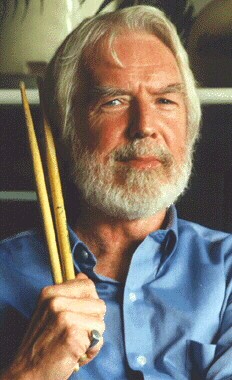
The structure and organisation of the Australian Jazz Awards need improving if the event is to realise its potential, according to two prominent members of the jazz community.
Established in 2003, the Awards – commonly known as the Bells – aim to encourage the performance and recording of jazz in Australia. They are also designed to throw the public spotlight on to the art form and help raise its profile. The winners of the 2006 Awards were announced in Melbourne in May.
Key among the concerns is the organisers’ apparent failure to widely communicate information about the event – most critically, details about the nomination process.
Major jazz organisations in Victoria, New South Wales, Queensland and Western Australia say they didn’t receive details of the awards from the event organisers.
The Melbourne Jazz Co-operative’s Martin Jackson says this has meant that the broad cross section of the jazz community hasn’t been able to contribute to the nomination process. “They have mainly come from industry insiders, such as record company figures, who are on the Awards’ relatively modest contact list,” says Mr Jackson.
“There needs to be more national participation, and this can only come about
by using the existing infrastructure, such as this website [Jazz Australia], national
radio and jazz presenter organisations,” he says.
The president of the Sydney Improvised Music Association (SIMA) Peter Rechniewski agrees. He says the nomination process is flawed and needs to be more transparent.
“If the shortlist is compiled from nominations made by the public and interested parties I would have thought that it would have been essential for the awards organisers to contact all major jazz organisations who have emailing lists to ensure the widest publicity for the nomination process, and especially the closing date,” says Mr Rechniewski.
“I think the fact that Ten Part Invention weren’t on the shortlist for the Ensemble of the Year, given their achievements in the past two years – their appearance at the Chicago Jazz Festival in 2004, the debut of the Slessor Project at Jazz Now and then at Wangaratta, as well as the release of their Music of Roger Frampton CD – is a poor reflection of the way the nomination process is organised and publicised.”
This year four of the seven judges on the adjudicating panel were from overseas, prompting concern that they would find it hard to properly assess the nominees. The chairman of the Australian Jazz Awards, Albert Dadon, believes there are significant advantages to such international input.
“It is like a blind test for wine,” says Mr Dadon. “The best wine wins. The best jazz artists will win in this instance, you can be sure of this. That’s at one level. On the other level, overseas judges are able to expand the audience of Australian jazz. For instance, if you were to write a formidable article on Australian jazz [in this country] you are preaching to converts. However if an article appears in Downbeat in the United States, it can potentially make a huge difference to Australian jazz artists.
Martin Jackson concurs. He says all the overseas judges are experienced and well-regarded, so their lack of prior local knowledge shouldn’t necessarily be an impediment. “In fact, it may provide a more objective and fresh assessment of some of our artists, as previous international visitors to Wangaratta have sometimes done.”
However, SIMA’s Peter Rechniewski – speaking before the awards were announced – maintains that assembling a judging panel with a majority of overseas participants demonstrates a “high level of cultural cringe”.
“I am sure that all the overseas judges will do a professional job but they will only go on recorded music and, presumably, a summary of a group’s or artist’s activities over the year,” he says. “Given the fragmented nature of the jazz scene here and the lack of public information or, in their case, personal information about it, that’s an invisible hurdle of considerable height.”
For similar reasons, Mr Rechniewski also says the lack of a Sydney-based judge was also a major issue. But Mr Dadon maintains that geography is unimportant. “It is the luck of the draw that this year there were two from Melbourne and one from Adelaide who, incidentally, writes for one of the two national newspapers. One of the two journalists from Melbourne writes for a national magazine.”
The MJC’s Martin Jackson says the Bells provide long overdue recognition for Australian jazz and that Albert Dadon should be congratulated for marshalling the necessary corporate support that has been needed to bring the concept to fruition.
“So the potential is there in abundance,” says Mr Jackson, “but it needs to tighten its criteria and application if it wants to win the respect of the recipients it was
created for – the actual Bell winners. It is still yet to establish the credibility and integrity of the Wangaratta National Jazz Awards.”
Peter Rechniewski says several things need to change if the awards are to have the respect of the jazz community nationally. “First, the nomination process has to be reorganised and better publicised with a new and more detailed set of guidelines,” he says.
“Second, the panel has to be at least doubled with the overseas component making up about a third. Given that this year the panel never met face-to-face but worked via email, there is no excuse for keeping the panel so small. Third, the Awards must be autonomous from the Umbria-Melbourne Jazz Festival.”
Photo: John Pochee, winner of the Hall of Fame Career Achievement Award.













